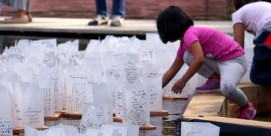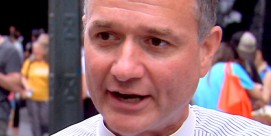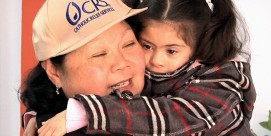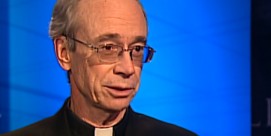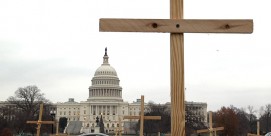Richard Ryscavage, SJ: The Moral Foundations of Human Rights and the UN Itself
Commemorating the 60th anniversary of the Universal Declaration of Human Rights, Pope Benedict XVI devoted most of his UN General Assembly speech to a philosophical explication of the moral foundations of human rights and of the UN itself. He called on the UN to attend to the moral anchors that produced the Universal Declaration of Human Rights. In his exploration of the roots of human rights he articulated the following key ideas:
- SUBSIDIARITY: The principle of subsidiarity, he suggests, should inspire and govern the work of the UN. This principle says that nothing should be done at a level higher than is necessary. The UN should deal with those problems that can only be solved at the global level and should leave to the individual states those issues that can be handled justly at the national level.
- THE RIGHT TO PROTECT: Basing himself on this perspective of subsidiarity, the pope put a surprising emphasis on what many consider a new principle in international relations: the right to protect. He said the right to protect was already present implicitly at the founding of the UN and at the origin of international law. One of the essential functions of the state is to protect its own people. If the state is unwilling or unable to guarantee that protection, then the international community must intervene through the juridical power provided in the UN charter and in other international instruments. Presumably he is referring, for example, to chapter 7 provisions of the charter which allow the Security Council to authorize force and interventions. The pope sees this responsibility of the international community to intervene to protect as an expression of the importance of preserving human dignity.
- THE POWERFUL FEW: Alluding to the lock that the five permanent members of the UN Security Council have on these kinds of decisions to intervene, the pope suggests that these decisions are “subordinated to the decisions of a few” instead of “collective action by the international community.” Is he taking the side of the General Assembly against the power of the Security Council?
- NOT A MATTER OF LAW ALONE: Respect for human rights, he said, has become an important indicator of whether a society has attained the social conditions where human beings can fully develop and flourish. These social conditions, however, can not be reached merely through legislation and rule-making. It is not, at its heart, a matter of managing or “balancing” competing human rights. Nor should human rights be presented purely in terms of legality or, as he said, human rights “risk becoming weak propositions divorced from their ethical and rational dimension which is their foundation and goal.” Rights must be seen as an expression of a common sense of human justice universally applicable in every society.
- RIGHT TO RELIGIOUS FREEDOM: The pope noted that human rights must also include the right to religious freedom which is more than freedom of worship. Religious freedom must also include the freedom of all religious believers to participate fully in society, contributing to the common good. It should never be necessary, he said, “to deny God in order to enjoy one’s rights.”
- INTERRELIGIOUS DIALOGUE: The pope sees great benefits flowing from conversations between religions. The United Nations should support these dialogues, but the conversations should be divorced from the political forum of the UN.
- ACCEPTING THE ENTIRE DECLARATION OF HUMAN RIGHTS: The pope expressed concern about efforts to reinterpret the foundations of the Universal Declaration in order to serve “particular interests.” By this he was probably referring to attempts to treat the Universal Declaration as a “cafeteria” document, where governments can pick and choose which human rights they want to promote. Benedict insists that the document was adopted as a unitary standard and should not be applied “piecemeal.”
— Richard Ryscavage, S.J. is professor of sociology and international studies and director of the Center for Faith and Public Life at Fairfield University in Connecticut.

